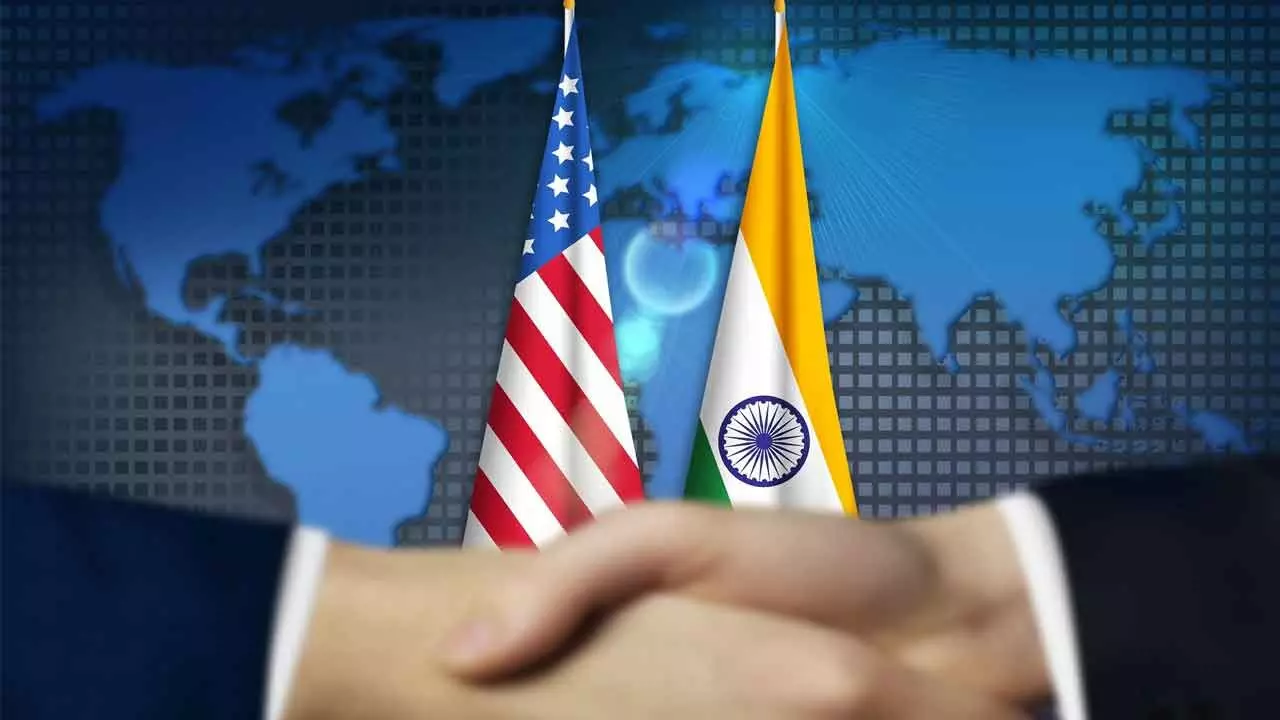Can Indo-US Ties Thrive Despite Trade Disagreements?
Can Indo-US Ties Thrive Despite Trade Disagreements?

Commerce & Industry Minister Piyush Goyal’s assertion that Donald Trump is a “friend of India” is not off the mark. And it is also very timely. With Trump winning the US presidential election, global markets and diplomatic circles are abuzz with speculation about his trade policies. Given his protectionist stance, concerns over the rise in tariffs have been expressed all over the world, including India.
It may be recalled that in his first term, he had complained that India had “one of the highest tariffs in the world.” But it must be remembered that his protectionism did not have much effect on India at that time, as it was aimed at China. This time too, his first salvo targets China, Canada, and Mexico. Evidently, Goyal had these facts in mind when he recently said at an event, “I do not foresee any problem whatsoever.”
Besides, reducing something as comprehensive as India-US relations to only tariffs excessively narrows our focus. Historically, the bilateral ties have evolved beyond transactional trade issues to encompass strategic, technological, and geopolitical dimensions. Indeed, there was a time the two nations were called ‘estranged democracies,’ but that is now history; currently, the ties are very strong—and growing.
Delhi has become a critical partner for Washington in the latter’s efforts to counterbalance Beijing’s growing influence in the Indo-Pacific region. Trump's well-documented antipathy towards China aligns with India’s strategic interests, particularly in light of recent border tensions and trade disputes with Beijing. The Quadrilateral Security Dialogue (QSD), or Quad, is expected to gain strength under the second Trump administration. Quad is an informal strategic forum comprising India, the US, Australia, and Japan.
This shared outlook between India and the US creates an opportunity for both countries to deepen and broaden cooperation in such areas as defense, technology, and infrastructure. Disagreements over trade policies are not likely to cast a shadow on the growing proximity between the world’s two largest democracies.
We should also not lose sight of ‘friendshoring,’ one of the key trends shaping global trade in recent years. It refers to shifting US supply chains from China to friendly countries with shared values and stable partnerships. Trump is keen to reduce dependence on adversarial nations like China. This aligns with India’s aspirations to position itself as a reliable alternative in global supply chains. This provides an opportunity to India to boost its sluggish manufacturing sector.
Beyond economic considerations, Trump has shown a keen interest in strengthening Indo-US relations across a broad spectrum of areas. During his previous tenure, landmark agreements such as the US-India defense cooperation pact underscored the strategic importance of this partnership. The increasing frequency of joint military exercises, defense technology transfers, and intelligence-sharing initiatives highlights the deepening trust between the two nations.
Furthermore, the Trump administration’s support for India’s membership in global bodies like the Nuclear Suppliers Group (NSG) and its endorsement of India’s stance on terrorism signal a shared vision for regional and global security. These developments reflect a commitment to broadening the scope of collaboration, ensuring that bilateral ties remain resilient amid shifting political and economic dynamics.
In a nutshell, Trump’s impact on Indo-US relations must be viewed against the backdrop of the evolving global landscape. This includes bilateral trade, but this doesn’t diminish the importance of friendshoring, economic cooperation, and defence ties.

